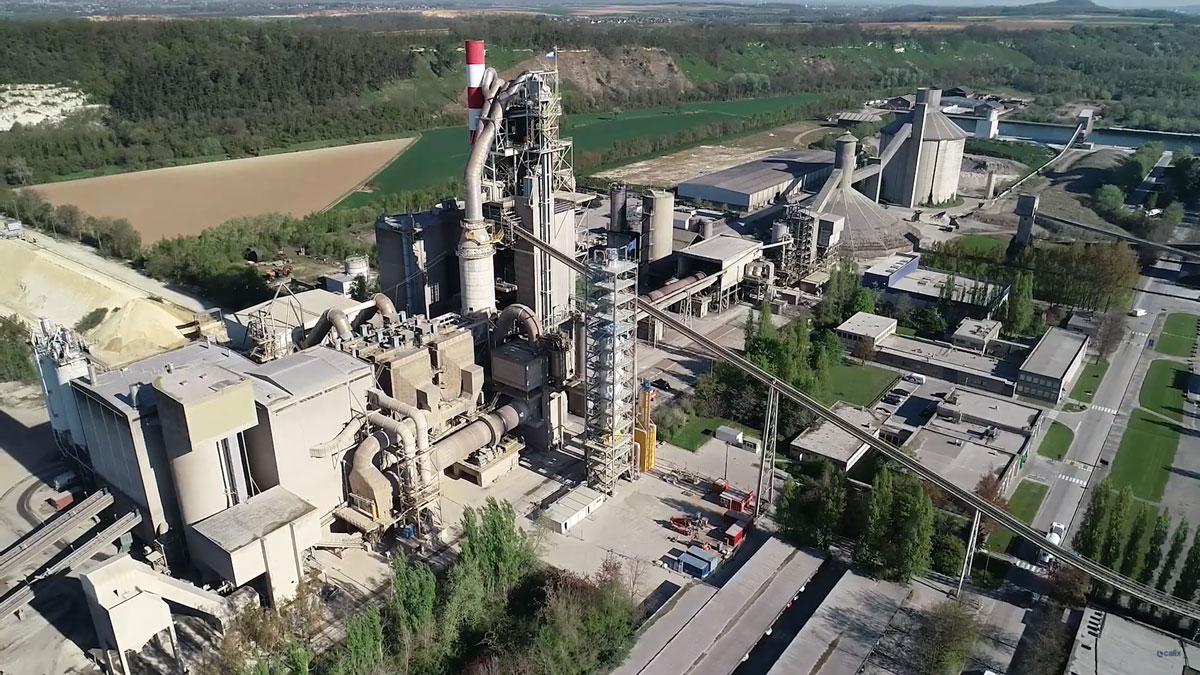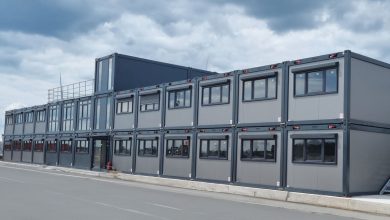Carbon Direct Invests EUR 15M for 7% Stake in Calix’s LEILAC Business
Australian technology company Calix announced global decarbonisation investor Carbon Direct Capital Management has invested EUR 15m for a 6.98% equity stake in Calix subsidiary, the LEILAC Group, which is dedicated to the commercialisation and ongoing development of Calix’s LEILAC CO2 capture technology.
In addition, as part of the transaction, Calix has entered into a licence agreement with the LEILAC Group under which it will retain 30% of royalties earned by the LEILAC Group from deployment of the technology, regardless of Calix’s equity stake in the LEILAC Group. The LEILAC Group will operate autonomously, with its own management team and a Board composed mostly of Calix directors, with one appointee nominated by Carbon Direct.
The LEILAC Group, comprising Calix (Europe) Ltd (UK) and its subsidiaries, is the exclusive licensee of Calix’s Low Emissions Intensity Lime and Cement (LEILAC) CO2 capture technology. LEILAC technology was successfully piloted at 25K tonnes per annum scale at HeidelbergCement’s plant in Lixhe, Belgium, and is being scaled up to 100K tonnes per annum scale in the “LEILAC-2” project for a HeidelbergCement plant in Hannover, Germany. Further commercial pilot plants for lime production are under development with Tarmac, the UK division of CRH, and AdBri in Australia, among others.
US-based Carbon Direct’s investment arm, Carbon Direct Capital Management, makes direct investments into leading carbon removal and utilisation technology companies. The firm also operates a scientific advisory business, which advises leading corporations on how to fulfil their carbon removal and utilisation commitments. Carbon Direct’s advisory work spans 28 countries and includes clients such as Microsoft and Shopify.
Pottinger acted as financial and strategic advisor to Calix on this transaction, and Hamilton Locke acted as legal advisor.
Carbon Direct investment to accelerate LEILAC technology uptake
Along with existing capital already invested in the LEILAC Group, Carbon Direct’s investment will be used by the LEILAC Group to accelerate and continue to de-risk deployment of the LEILAC technology, both technically and commercially. Technically, additional resources will be deployed in engineering and research to speed optimisation. Commercially, new resourcing in business development, especially project development and CO2 use or sequestration, will be deployed to help develop complete project solutions for customers. A new CEO will be appointed to run the business as a stand-alone entity.
The investment marks the conclusion of work led by Pottinger to accelerate commercialisation of the LEILAC technology and identify the optimal financial and strategic partner(s) to support this the business’ critical next phase of development.
Calix Limited CEO Phil Hodgson said the deal represented a critical milestone in Calix’s stated strategy of seeking equity “farm-ins”, after initial development undertaken by Calix, to accelerate and deploy its underlying platform technology into each line of business, with Calix remaining head licensor.
“As each of these businesses become independent commercial entities, they will remain joined at the hip technically with Calix, which will continue to support development of the core intellectual property. Over time, growing royalty income from these companies will also support the development of new applications of the IP and associated technologies,” Phil Hodgson added.
He said the investment by Carbon Direct will help accelerate the development and deployment of the Calix Technology for cement and lime decarbonisation. “The recent Intergovernmental Panel on Climate Change (IPCC) report was unequivocal in saying that to reach the stated 2030 goals on climate change, CO2 emissions have to be reduced. LEILAC Technology is an option that is being deployed now to meet this urgent need. Carbon Direct coming on board is a strong vote of confidence in Calix’s LEILAC decarbonising technology, following on from endorsements and partnerships with industry leaders such as HeidelbergCement, Cemex, Lhoist and Solvay. The investment will assist us in accelerating the deployment of the technology into the carbon capture and storage landscape, with additional resources covering technology research and development, CO2 logistics, use and storage, and whole-of-project expertise, while our technology gains more exposure in global markets outside of Europe. The deal also represents our first material portfolio transaction in our stated strategy to farm-in equity to deploy our technology commercially. We believe this strategy adds speed and focus at a critical time in the technology commercialisation journey, and leaves the head company to focus on what it does best – supporting our technology and developing the next global, disruptive applications.”
Carbon Direct founder and CEO Jonathan Goldberg said Carbon Direct invested in companies that could deliver both commercially viable solutions and solve big climate problems. “We are very impressed by the technical and commercial rigor of the LEILAC team, and plant partners are outspoken in their excitement about LEILAC. We are delighted to support Phil, Calix, and the LEILAC Group as they seek to scale LEILAC into cement and lime plants around the world,” he mentioned. “Both Carbon Direct’s investment team and its scientific advisory team, which now includes 46 globally renowned CO2 scientists and project managers, are available to assist the LEILAC Group on subjects including capital markets, regulations, commercial development, and technical development. Our entire firm is dedicated to helping technologies such as LEILAC to scale.”
Pottinger Executive Chairman Nigel Lake pointed out: “Great engineering and technology alone are not enough: to have a transformational impact on an entire global industry takes a dedicated and well-resourced business. The investment by Carbon Direct marks a critical inflexion point for both Calix and the LEILAC Group as decarbonisation of the construction sector begins in earnest.”
Carbon capture is needed to reach the UN climate goals
Global decarbonisation efforts are accelerating. For example, in June 2019, the UK Government became the first major economy to commit to net zero CO2 by 2050 and is heavily supporting decarbonisation efforts through funding under the UK Department of Business, Energy and Industrial Strategy £1bn Net Zero Innovation Portfolio. In 2021, the European Union unveiled a plan to slash its carbon emissions by 55% before 2030 and impose border tariffs on countries, including Australia, that do not have some form of carbon price.
Cement production is the world’s single biggest industrial cause of carbon pollution, responsible for up to 8% of global emissions, producing more than 4 billion tonnes of CO2 per year. Cement is the primary ingredient in concrete, the second most used material in the world after water. Meanwhile, the global production volume of lime was approximately 330 million tonnes in 2020, with myriad applications beyond cement including the manufacture of aluminium, asphalt, copper, glass, gold, lithium, plasterboard, silver, solar-grade silica, steel, table salt and toothpaste. Lime is also used in agriculture and for water and sewage treatment.
Making 1 tonne of lime or cement clinker produces approximately 1 tonne of CO2
LEILAC’s Breakthrough carbon capture technology
Between 50 to 60% of cement CO2 emissions derive from the process of heating or “calcination” of limestone, the chemical reaction that converts limestone (CaCO3) into lime (CaO) and CO2. These emissions are therefore unavoidable, and a low-cost capture solution is essential.
The patented LEILAC kiln design separates CO2 emissions arising during lime and cement production without significant energy penalty. The LEILAC kiln is being developed to use a variety of input fuels and is also easily electrified, enabling complete decarbonisation of production by switching to renewable energy.
LEILAC technology was successfully piloted at 25ktpa scale at HeidelbergCement’s Lixhe Cement plant in Belgium and is being scaled up to 100kTpa scale in the “LEILAC-2” project for a HeidelbergCement plant in Hannover, Germany. LEILAC-2 is targeted to be in production by late 2023/early 2024, and is being funded by EUR 34m from the EU Horizon 2020 scheme through a combination of cash and in-kind contributions from industrial partners. In addition to HeidelbergCement, industrial partners helping in developing the technology include Cemex, Tarmac, Cimpor, Lhoist, Engie and Solvay.
Six commercial-scale cement and four commercial scale lime follow-on projects are being developed with several interested parties, with two projects now moving into more detailed planning under previously announced heads of agreement with CRH’s UK subsidiary Tarmac and Adbri in Australia.







